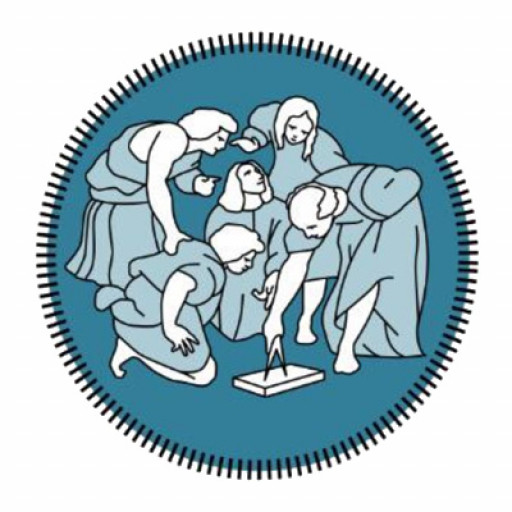Photos of university / #ucl
The MSc in Light and Lighting at University College London offers a comprehensive postgraduate education designed to equip students with both theoretical knowledge and practical skills in the field of lighting technology, design, and application. This programme is ideal for professionals and graduates interested in pursuing careers in lighting design, architectural lighting, urban lighting, and related industries. The curriculum blends foundational principles of light physics, human visual perception, and environmental considerations with cutting-edge advancements in lighting systems and controls. Students will explore topics including daylighting, electrical lighting design, lighting ergonomics, sustainability, and innovative lighting techniques. The programme emphasizes the integration of lighting into architecture and urban planning, highlighting how lighting enhances safety, aesthetics, and functionality in various environments. Through a combination of lectures, practical workshops, project work, and site visits, students develop critical thinking and problem-solving skills pertinent to real-world lighting challenges. The programme also encourages the development of technical proficiency in lighting simulation, measurement, and control systems, preparing graduates to tackle complex lighting projects in a professional context. Collaboration with industry partners and opportunities for internships enhance employability and ensure students are well-versed in current industry practices and emerging trends. Graduates of this programme are equipped to contribute to innovative lighting solutions that improve quality of life, promote energy efficiency, and support sustainable development goals. The MSc in Light and Lighting at UCL is taught by leading experts in the field, providing a stimulating academic environment that fosters creativity, technical excellence, and a deep understanding of the social and biological impacts of lighting.
Students develop an understanding of a wide range of topics associated with the design of the lit environment including lamp and luminaire technologies, the impact of light on architectural form and the human reaction to light. The programme provides a holistic approach to light and lighting so that graduates have both the vision to design beautiful lit environments and the skills necessary to ensure that they are successfully engineered.
Students undertake modules to the value of 180 credits.
The programme consists of four core modules (75 credits), one optional module (15 credits), and a light and lighting dissertation (90 credits).
Core modules
- Lighting Fundamentals
- Lighting Applied Calculations
- Lighting Research
- Advanced Lighting Design
Optional modules
- Lighting Practice or another appropriate module from any UCL Bartlett MSc programme
Dissertation/research project
All MSc students submit a 15,000-word dissertation on a topic associated with light and lighting in the built environment.
Teaching and learning
The programme has formal elements of lectures and tutorials that are complemented with project work and site visits to study lighting. There are also other visits to laboratories and other facilities associated with the subject. Assessment is through coursework (essays and design projects), written examination and a 15,000-word dissertation.
The normal minimum qualifications are a second-class Bachelor's degree from a UK university or an overseas qualification of an equivalent standard.
A second acceptable qualification is a degree of lower than second-class Bachelor's standard, or an equivalent overseas qualification, in a subject appropriate to the programme, plus extensive background and experience in the field. The latter implies considerable experience as a professional at a senior level.
For applicants without a first degree or full professional membership, but with relevant and substantial work experience in the field, a special qualifying examination may be set. Details of this route can be obtained from the UCL Bartlett's Graduate Faculty Office.
The MSc Light and Lighting at University College London offers a range of financing options to support prospective students. Tuition fees vary depending on the student’s residency status, with current international students paying approximately £26,000 per year and home students paying around £12,000 per year. Additional costs may include registration fees, materials, and living expenses. UCL provides several scholarship opportunities, including the UCL Excellence Scholarships and department-specific awards, which can significantly offset tuition costs for outstanding applicants. In addition, students are encouraged to explore external funding sources such as government-sponsored loans, research grants, and sponsorships from industry partners. UCL's financial aid office offers comprehensive guidance on available funding options, application procedures, and deadlines. For international students, there are specific scholarships aimed at supporting students from different regions, and some awards are merit-based, considering academic excellence and relevant experience. The university also promotes part-time work opportunities on or near campus, enabling students to supplement their income during their studies. Furthermore, students can consider applying for student loans through their home countries or international loan programs that collaborate with UCL. It is advisable for prospective students to start their financial planning early and consult the UCL financial support services for tailored advice. Overall, while the cost of studying MSc Light and Lighting can be considerable, multiple funding opportunities and support mechanisms are in place to make the program accessible to qualified students from diverse financial backgrounds.
The MSc Light and Lighting at University College London is a specialized postgraduate program designed to equip students with a comprehensive understanding of the science and application of lighting technology. This program covers a wide range of topics including the physics of light, illumination engineering, daylighting, lighting design, and the impact of light on human health and well-being. It aims to develop technical expertise alongside an appreciation of aesthetic, environmental, and social considerations in lighting design.
Students have the opportunity to learn about the latest advancements in lighting technology, including LED lighting, smart lighting systems, and sustainable lighting solutions. The curriculum integrates theoretical knowledge with practical skills, often involving laboratory work, computer-aided design, and real-world case studies. The program also emphasizes research methods and encourages students to undertake a substantial project or dissertation, which allows them to explore specific areas of interest in depth.
Designed for graduates with backgrounds in engineering, architecture, or related fields, the MSc Light and Lighting prepares students for careers in lighting design, consulting, manufacturing, and research. Industry partnerships and visits are often part of the program, providing valuable insights into current practices and innovations. The program is delivered by experienced academics and industry professionals, ensuring that students receive a rigorous education aligned with industry standards.
Graduates of this program are well-positioned to contribute to sustainable development in lighting design and to address complex challenges such as energy efficiency, human-centric lighting, and environmental impact. The program also supports further research and PhD studies for those interested in academic careers. Overall, the MSc Light and Lighting at UCL offers a robust foundation in both theoretical concepts and applied skills, facilitating professional growth and innovation in the lighting industry.









